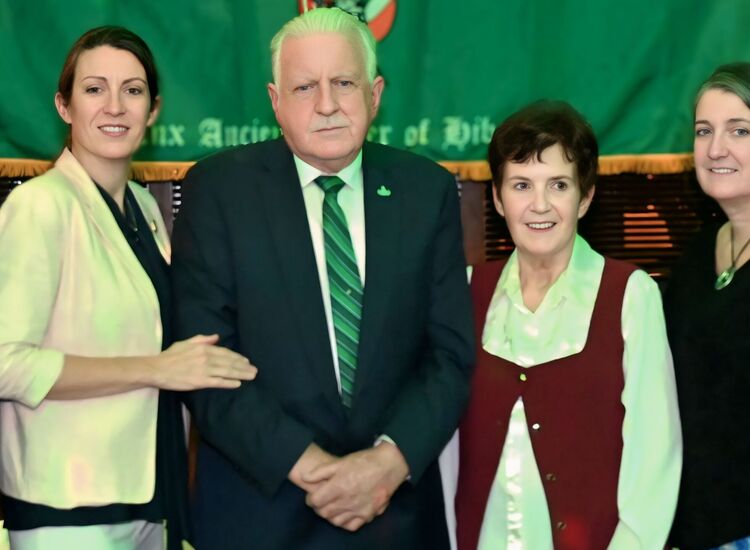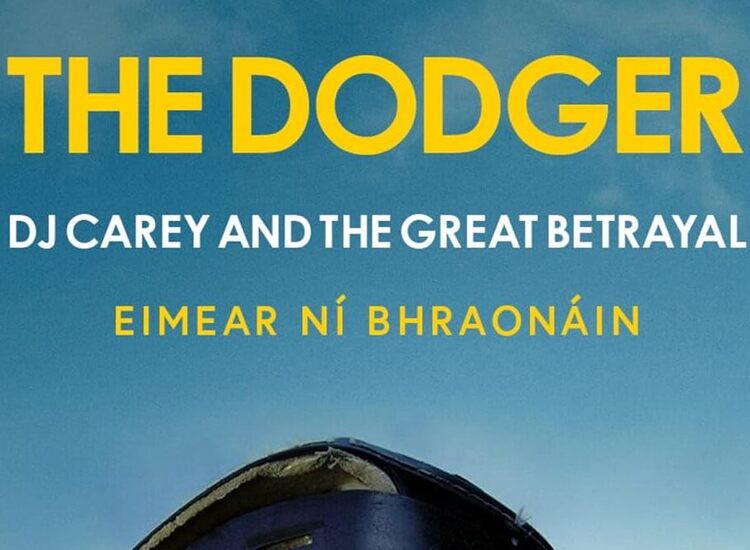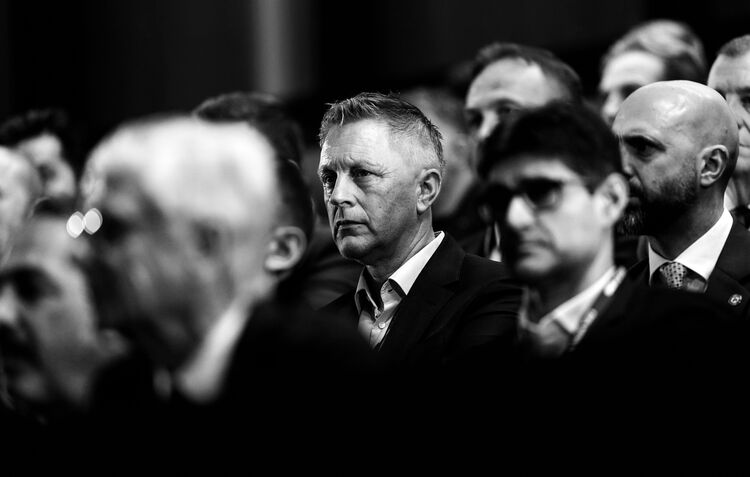PHOTOS BY JIM RODGERS
By Jim Rodgers
In this extract from a yet to be published novel, “Tierney’s Plate,” investigative reporter Phineus Tierney returns to New York City after hiding out in West Cork where he has recently written columns exposing a secret society of New York lawyers, founded originally by his grandfather, which had been financing dissident paramilitary activity in an attempt to scuttle the Good Friday Agreement. Happy to be back in the Big Apple and hoping to reunite with his ex-wife and his daughter he strolls up Fifth Avenue, a man at peace with himself and his family demons.
Phineus was glad to be home in New York. He passed the public library and Nat Sherman’s, both anchoring the corner of 42nd Street and Fifth Avenue. He stopped in front of Nat Sherman’s and looked at the cigars and tobacco displayed in the shop window. What the hell, he thought. Every once in a while a good cigar was necessary to accompany a Fifth Avenue stroll. To emphasize the feeling in his heart that today he was cock ‘a the walk. Yes, he was. He in his rumpled suit, coffee-stained tie, and unkempt hair. He was smelling the coffee, or the roses, or whatever crap it was that one was supposed to smell in order to appreciate the moment. He bought a cigar, imported from the Dominican Republic. He stepped out of Nat Sherman’s, lit up the cigar and allowed the smooth flavor of the Dominican tobacco―grown from transplanted Cuban seeds―to bathe him in its richness and agrarian history. He stood on the corner of 42nd Street and looked up Fifth Avenue. He was stopping to smell life―in this case, the aroma of the cigar. His feet were planted on the sidewalk. He looked up at the October sky and then looked up the avenue and watched a bus rumble by. The bus spouted diesel exhaust. He breathed the exhaust as it mixed with the rich tobacco smoke. In West Cork it had been the ever-present smell of the peat fires burning―a smell not unlike asphalt being applied to a road. The smell of the city was different, but just as sweet.
Phineus continued walking up the avenue. For a brief moment a chill came over him and he looked over his shoulder half expecting to see someone he knew. The chill passed and he shrugged it off as paranoia. On the sidewalk the morning coffee carts were gone, replaced by the hot dog and pretzel stands which had fed the lunch time crowd. The sidewalks were crowded even in the late afternoon, as there is no down time for Fifth Avenue. And Phineus, after a time, had missed that in West Cork. This narcotic―New York―could be too much at times. But the city offered a high like no other place on earth―for a certain kind of person. Phineus realized he was probably that kind of person. It was a sobering thought to realize he was tethered to this place. But he also felt the warm feeling of belonging to a clan, a people―in his case, he was a New Yorker. His clan. His people.
He now walked by Saks Fifth Avenue, Rockefeller Center, and St. Patrick’s Cathedral. At 57th Street he passed Tiffany’s and Bergdorf Goodman’s. At 59thStreet, the Plaza and the beginnings of Central Park. He continued up the avenue, past the apartment buildings that housed the rich and powerful. He felt a chill again and shrugged it off―nothing could dampen the feeling he had, the bounce in his step. He cruised past the Children’s Zoo, where he had brought Abby to see the penguins the afternoon before Judge Horan’s funeral. Indeed, like the penguins beneath the surface, Bill O’Donnell and Harold Boyce had proved to be formidable opponents. But he had forced both of them to the surface with his article in the Telegraph, and once landed they proved to be nothing but waddling old Irish fools. Hacks―that’s all they were. The last of the Tammany hacks. And the last of the spawn of the Irish Irregulars who never could give up the cause. It would all be so pathetic except that these hacks had caused the deaths of innocents. And they had spawned new generations of hate-mongers. He realized it would never end. Most moved away from the hatred and embraced life, the living. Moved forward to a better future. The remainder looked to the past―its sins; its failures; its injustices; and, its muted passion. They then took that past and welded it to the future, so that the past survived. No such thing as live and let live. No such thing as rebirth and renewal. It was all about scores to settle and wrongs to right, without any thought that the wrongs committed would lead to even newer wrongs committed by even younger passions. But Phineus knew that he wanted to live and love. In West Cork he had shed the ghosts of his past that had kept him from believing in the future. These ghosts―the death of his father; his failed marriage; Judge Tierney’s Fenian deeds―made up who he was, but not where he was going.

He now saw himself and his family―including everything that had come before him, everything he had experienced, and everything he was to experience―as intertwined and connected; fungible; inseparable. This understanding created within him a strength that lifted him. The lightness he felt was incredible. The October air seemed sharper. The trees in Central Park were exploding in their brightness, the blue sky framing the leaves so that the richness of the colors ran into each other. He didn’t know if he was having a heart attack, a cerebral orgasm, or the cigar had gone to his head. But the clarity was before him and he looked up at the leaves framed against the blue sky and knew then that it was harvest time. Time to harvest that which he loved and that which belonged to him. Oh, he could go on like he had been doing―chasing demons and ghosts. But living that way was like walking through mud, lifting his feet from a ground that clawed at him and tried to suck him back down into the mire of the past. He’d had enough. He was light now―in his heart and in his body.

The rushing late afternoon traffic of the avenue contrasted with the natural beauty of the park. But the lightness was still there. He continued walking north. Like a salmon moving upstream. Yes, Fifth Avenue was his stream and he now moved forward as nature intended. He must claim that which was his―always had been. Always would be. The traffic moved downtown. He moved uptown. Upstream it was. Yes, indeed. Certain things were set in stone. Preordained. As natural as the fall colors of the leaves on the old trees that canopied over him as he leapt upstream toward his spawning ground. As natural as his love for Kate. His mistake had been buying into that polite, civilized cow shit. Do the right thing―when the woman asks you to leave, then leave. Go away. Don’t fight it. Don’t work at it. Don’t hold on to that love like it was the last piece of flotsam in the ocean. But now he, Phineus Tierney, was saying, “No, no, no!” The fabric of his marriage, his life, was too precious to walk away from. His ancestors had lost four children to the famine. They had overcome. Took the remaining six children to America and started a new life. Kept the fabric of their family. Weaved it, patched it, and lived it. He must do the same. For his sake, for Kate’s sake, and for Abby’s sake.
Phineus continued moving upstream along the avenue. The afternoon was coming to an end. Dusk would soon be upon him. He was now across the street from the Metropolitan Museum of Art. He finished his cigar and then waited. His heart beat fast. He looked across the avenue. Visitors to the Met were leaving. Security guards were closing the front doors. And then Kate appeared at the top step. He bolted across the avenue, dodging a taxi that almost ran him down. He moved up the steps as Kate walked down. Halfway down the steps she saw him and stopped. He looked at Kate: her wavy coal-black hair; her beautiful face; her slim legs covered by black leggings, the rest of her covered by the ever-present baggy sweater. Then he looked into her bright green eyes, into her soul.
Jim Rodgers practices maritime law and lives with his wife and two children in Manhattan. Extracts from another of his novels, “Long Night’s End,” have previously appeared in the Echo.









